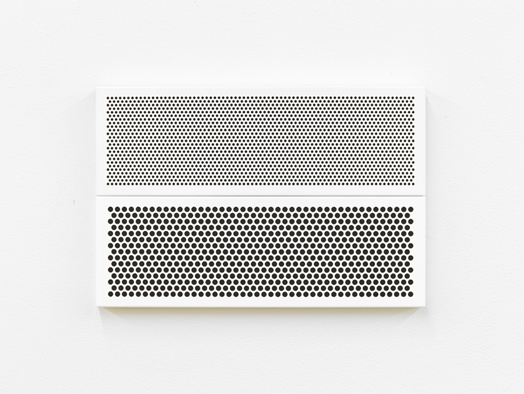
Kristján Gudmundsson (born 1941) is a pioneer of
Icelandic conceptual art, which is well known and
highly esteemed among all admirers of this genre.
It emerged around the turn of the 1960s and 1970s
among young Icelandic artists and in connection
with the Súm gallery founded by them in Reykjavik.
The genre is marked by intelligence, severity,
lyricism and humour. It is contemplative,
restrained and insightful, and refuses to accept
things as given. The world and its phenomena are
enigmas, for which art is really the only source
of precise, detailed and comprehensive answers.
Kristján Gudmundsson’s works have always employed
highly reduced forms. His critical thinking and
gaze have eliminated everything that is
unnecessary, simplifying, and leaving only that
which is necessary, and suffices, to be seen.
Gudmundsson works in an area where tensions are
generated when the non-existent comes into existence.
In their content, Gudmundsson’s works are
intellectual challenges, addressing a wide range
of scholarly, artistic and human issues. He has a
fascinating manner of combining seemingly
incommensurate things in his works. Colour may
turn into verbal expression, time can become
visual, and mathematical series of numbers may
refer to pleasures of the mind and the body.
Gudmundsson’s works stimulate intelligent viewers
and give aesthetes deep satisfaction. Their
refined humour appeals to some, while others find
appeal in their absoluteness in the manner of mathematical formulas.
In 2009, Kristján Gudmundsson received the
Carnegie Art Award, the largest art prize of the
Nordic countries, for his series “Paintings in
Gray and White Frames”. Works from this series
are included in the present exhibition, which is
Kristján Gudmundsson’s sixth at Galerie Anhava.
In these paintings of completely new type,
Gudmundsson combines in his typical fashion
elements appealing to different senses in
individual works. He uses industrially made
perforated metal frames that have been cut to
size, with monochrome painted soundproofing
material showing through the holes.
Standard-sized panels of this kind are normally
used for acoustic sound dampening in building
interiors. As often before, Gudmundsson has
appropriated here an everyday material developed
for practical needs, processing it into works
that not only charm the viewer with their elegant
proportions and the different reflective
characteristics of the materials but also arouse
interesting questions about the synaesthetic properties of the pieces.
Though differing in form from all of
Gudmundsson’s earlier works, the exhibits
nevertheless evoke a strange feeling of
recognition. The relationship of the colours,
shapes and different-sized holes of the panels
both among themselves and with other elements is
unconditional, indisputable and perfect.